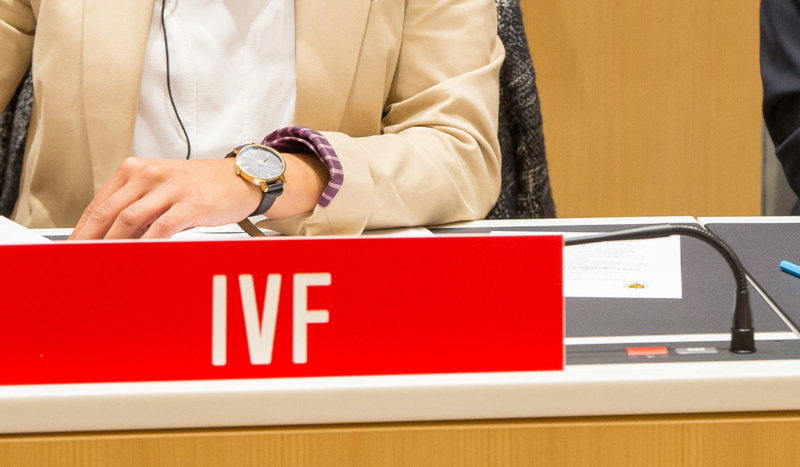
World Intellectual Property Organization / Flickr
CV NEWS FEED // NBC News has released an extensive analysis revealing that men and women have experienced tremendous distress and pain from errors made in the in vitro fertilization process, underscoring the harm that can be caused by the unregulated industry.
From 2019 to 2024, more than 300 lawsuits were filed against fertility clinics or companies across 19 states, “alleging that embryos, eggs or sperm had been lost, destroyed, or swapped,” NBC reported in “After IVF nightmares, patients have few protections,” an investigative piece by several contributing writers.
The few lawsuits that went to trial were settled or dismissed, according to the report.
Krystena Murray, now 38, gave birth to a baby boy conceived via IVF, a process NBC outlined as “grueling” for Murray. After delivery, however, she and the Georgia-based fertility clinic discovered through a DNA test that the clinic “had implanted a different couple’s embryo in her uterus.”
She raised the baby for five months and then met his biological parents in court, where she surrendered the baby. She left the court heartbroken. According to the report, Murray sued the Georgia fertility clinic in February.
In a statement to the news outlet, the Georgia clinic Coastal Fertility Specialists said it “deeply regrets the distress caused by an unprecedented error that resulted in an embryo transfer mix-up.”
Murray’s attorney, Adam Wolf, said at a news conference in February, according to NBC, that while IVF facilities remain unregulated, “these types of errors will continue to occur.”
In the IVF process, many unused embryonic children are frozen indefinitely or destroyed.
The article states that in 2018, a storage tank at a fertility clinic in San Francisco experienced technical error, leading to the death of about 1,500 embryos, and the destruction of 2,500 eggs. The failure prompted 176 lawsuits.
The attorney representing the clinic’s parent company argued that the tank’s failure was due to a defect in manufacturing, not clinic negligence. The tank’s manufacturer denied the claim that the tank was defective, according to NBC.
NBC also reported that the frequency of these errors is impossible to gauge.
“It’s impossible to know how often IVF-related accidents or mistakes really happen because clinics aren’t required to report them to federal or state agencies,” the outlet reported. “No national database tracks the issues.”
NBC also spotlighted how, amid the issue of lawsuits and regulation, the topic of the embryonic humans’ personhood inevitably arises and intersects with the issue of abortion.
“Reproductive rights advocates also have a reason to be wary of increased IVF regulations: They fear amplifying debates about whether embryos are considered babies under the law,” NBC wrote.
>> Virginia judge rules frozen embryonic humans are not ‘property’ to be divided <<
Additionally, navigating a lawsuit related to IVF is more difficult than a typical medical malpractice lawsuit because there is rarely a physical injury to claim, Dov Fox, director of the University of San Diego School of Law’s Center for Health Law Policy and Bioethics, told NBC. Fox said courts usually consider the IVF mishaps “as unfortunate accidents rather than violations of a provider’s duty to care for patients,” according to NBC. Clinics also don’t promise results, so patients can’t usually successfully claim that a contract was violated.
“Courts have been reluctant to recognize reproductive interests as real or serious, and, in turn,” Fox said, “we haven’t developed the kind of practice standards or expectations enforceable under the law in the way that we have in other areas of health care.”
>> Theologian on Word on Fire explains why ‘IVF is NOT Pro-Life’ <<

